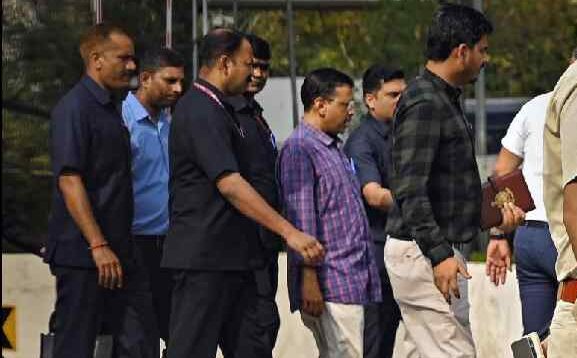THE NEWS FREEDOM
NEW DELHI, MARCH 28
The Rouse Avenue Court on Thursday extended the Enforcement Directorate (ED) remand of Delhi Chief Minister Arvind Kejriwal till April 1. The ED has requested seven days of custody for Kejriwal to conduct further investigations in the case.
In another significant development related to the case, responding to recent comments from the US State Department concerning the case, India has rebuffed the remarks as “completely unacceptable,” reaffirming its adherence to the rule of law. During a press briefing on Thursday, External Affairs Ministry (MEA) spokesperson Randhir Jaiswal emphasized that India’s legal processes are strictly governed by the rule of law, asserting that any insinuation regarding the country’s electoral and legal procedures is unwarranted. Jaiswal underscored the importance of mutual respect among democracies, urging nations to uphold sovereignty and refrain from interference in internal affairs.
Amid court proceedings, the ED has purportedly presented evidence suggesting the utilization of bribery funds by the Aam Aadmi Party (AAP) during elections in Goa. Kejriwal, directly addressing the courtroom, has accused the ED of attempting to undermine his party and highlighted the absence of a guilty verdict from any court, denouncing what he perceives as flimsy grounds for the arrest of a sitting Chief Minister.
The allegations of corruption stem from the implementation of a liquor policy in 2021 by the Kejriwal government, aimed at liberalizing liquor sales and divesting a lucrative government stake in the sector. Although the policy was subsequently revoked the following year, investigations into the purported irregular allocation of licenses have led to the imprisonment of two prominent Kejriwal associates.
In another development, the Delhi High Court has dismissed a public interest litigation (PIL) seeking the removal of Arvind Kejriwal from the post of Delhi Chief Minister following his arrest by the Enforcement Directorate. The court has asserted the absence of judicial jurisdiction in the matter, indicating that any constitutional concerns would be addressed by the President or Governor.
